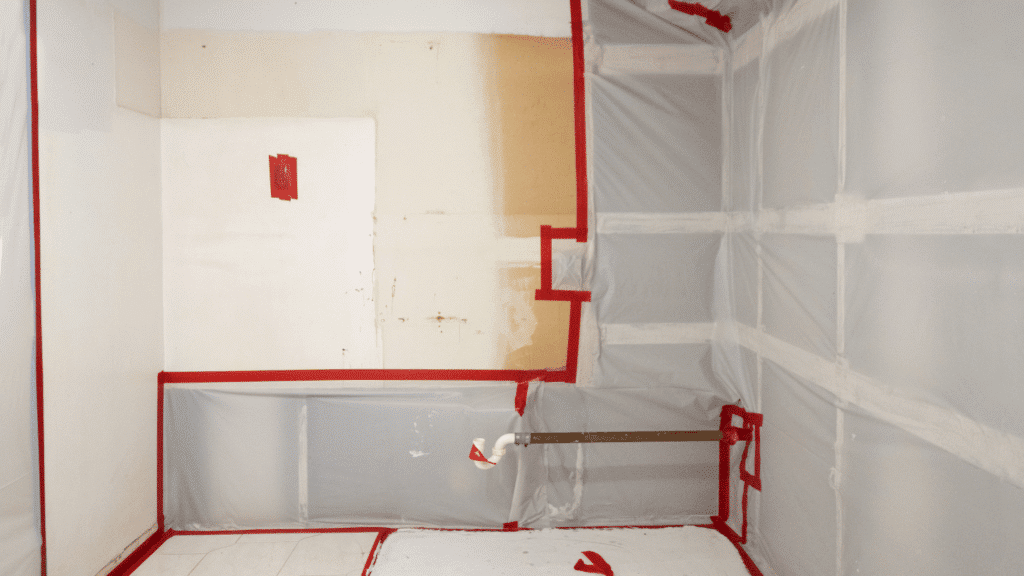Mold is a common issue that can affect homes and buildings, posing various health risks to occupants. Exposure to mold can lead to a range of health effects, especially for individuals with allergies, respiratory conditions, or weakened immune systems. In this blog post, we will explore the health effects of mold exposure and emphasize the importance of prompt mold remediation to protect your well-being and maintain a healthy living environment.

Understanding Mold and Its Health Impacts
Mold is a type of fungus that thrives in damp and humid environments. It reproduces by releasing tiny spores into the air, which can easily be inhaled. While mold spores are present in the environment, high concentrations of mold indoors can lead to adverse health effects. Common health issues associated with mold exposure include:
- Allergic Reactions: Mold spores can trigger allergic reactions in susceptible individuals. Symptoms may include sneezing, coughing, itchy or watery eyes, nasal congestion, and skin rashes. Allergies to mold can range from mild to severe, depending on the individual’s sensitivity and the type of mold present.
- Respiratory Problems: Mold exposure can cause or exacerbate respiratory conditions, such as asthma and bronchitis. Inhaling mold spores can irritate the airways, leading to coughing, wheezing, chest tightness, and difficulty breathing. Individuals with pre-existing respiratory conditions are particularly vulnerable to these effects.
- Sinus Infections: Prolonged exposure to mold can increase the risk of sinus infections. Mold spores can irritate the sinus passages, leading to inflammation, congestion, and recurring infections. Symptoms may include facial pain, pressure, nasal discharge, and headaches.
- Skin and Eye Irritation: Direct contact with mold or its spores can cause skin irritation, such as redness, itching, and rashes. Mold spores can also irritate the eyes, leading to redness, watery eyes, itchiness, and sensitivity to light.
- Immunological Effects: Mold exposure can weaken the immune system, making individuals more susceptible to infections and other illnesses. This is particularly concerning for individuals with compromised immune systems, such as those undergoing chemotherapy or with HIV/AIDS.
The Link Between Mold and Chronic Health Conditions
In addition to the immediate health effects, mold exposure has been linked to the development or worsening of chronic health conditions. Studies have suggested a connection between mold exposure and conditions such as:
- Asthma: Mold exposure can trigger asthma attacks and contribute to the development of asthma in individuals with a genetic predisposition. It can also worsen existing asthma symptoms, leading to increased medication usage and decreased lung function.
- Allergic Rhinitis: Mold allergies can cause allergic rhinitis, commonly known as hay fever. Symptoms may include sneezing, runny or stuffy nose, itching, and postnasal drip. Mold exposure can exacerbate these symptoms and impact the quality of life for individuals with allergic rhinitis.
- Chronic Sinusitis: Prolonged exposure to mold can contribute to chronic sinusitis, a condition characterized by persistent inflammation of the sinus passages. Symptoms may include facial pain, pressure, congestion, and recurrent sinus infections.
- Hypersensitivity Pneumonitis: Hypersensitivity pneumonitis is an immune-mediated lung disease that can be caused by exposure to mold spores. It leads to inflammation of the lung tissue, resulting in symptoms such as shortness of breath, coughing, and fatigue.
Prompt Mold Remediation: A Key to Protecting Your Health
Given the potential health risks associated with mold exposure, prompt remediation is crucial. Here’s why:
- Prevention of Health Problems: By addressing mold growth as soon as it is detected, you can prevent or minimize the health problems associated with mold exposure. Early intervention reduces the extent of mold contamination and limits the release of spores into the indoor air.
- Reduction of Allergenic Triggers: Mold spores are potent allergens, capable of triggering allergic reactions in susceptible individuals. Removing mold from your living environment can significantly reduce allergenic triggers and alleviate symptoms for allergy sufferers.
- Mitigation of Respiratory Issues: For individuals with respiratory conditions like asthma, mold remediation is vital. Removing mold reduces the irritants in the air, helping to improve breathing and reduce the frequency and severity of respiratory symptoms.
- Prevention of Further Mold Growth: Prompt remediation not only addresses existing mold but also helps prevent its recurrence. By identifying and rectifying the underlying moisture issues that contribute to mold growth, you create an environment that is less favorable for mold development.
- Restoration of a Healthy Living Environment: Mold not only affects your health but also compromises the integrity and aesthetics of your home or workplace. By promptly addressing mold issues, you can restore a healthy and visually appealing environment, promoting overall well-being and peace of mind
Conclusion
Mold exposure can have significant health effects, particularly for vulnerable individuals. Prompt mold remediation is essential for preventing health problems, mitigating respiratory issues, and restoring a healthy living environment. If you suspect or detect mold growth in your home or workplace, it is crucial to consult a professional mold remediation company. Their expertise and specialized techniques can help identify the extent of the problem, safely remove mold, and address the underlying causes. Remember, protecting your health should always be a top priority when it comes to mold exposure. Act promptly to safeguard your well-being and maintain a mold-free environment.




